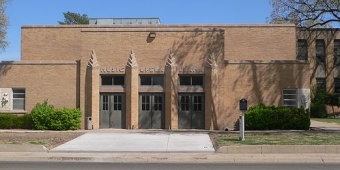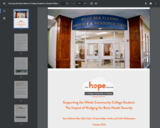
Amarillo College's Advocacy & Resource Center (ARC) was established to provide students with a centralized location to access resources that can assist in meeting students' basic needs. Social Workers are available to work with Amarillo College staff, faculty and community members to assist in removing barriers that prevent students from obtaining success. Through the ARC, students can access the Social Services Program which provides access to internal and external resources to ensure that student's needs are addressed appropriately. Emergency Aid is also available to students who meet the qualification requirements of the college's No Excuses Fund. Students are also able to inquire about scholarships that can help them meet their academic, childcare, and transportation needs. Last but not least, Amarillo College students are able to visit one of five campus food pantries that not only provides access to food but hygiene and baby resources as well.
DELIVERY FORMAT: The program has a hybrid format or has both online and in-person components.
PROGRAM SCALE: Large-scale (reaches more than 25 percent of its intended target population)
PROGRAM OUTCOMES: The Advocacy & Resource Center received over 8,000 visits during the 2022/2023 academic year.
DEPARTMENT(S) OVERSEEING PROGRAM: Vice President of Strategic Initiatives
CONTACT FOR MORE INFO: Jordan Herrera at jaherrera@actx.edu or 806-371-5439
- Subject:
- Student Success
- Material Type:
- Student Success: Student-facing
- Provider:
- Amarillo College
- Author:
- THECB Student Success
- Date Added:
- 09/26/2023



